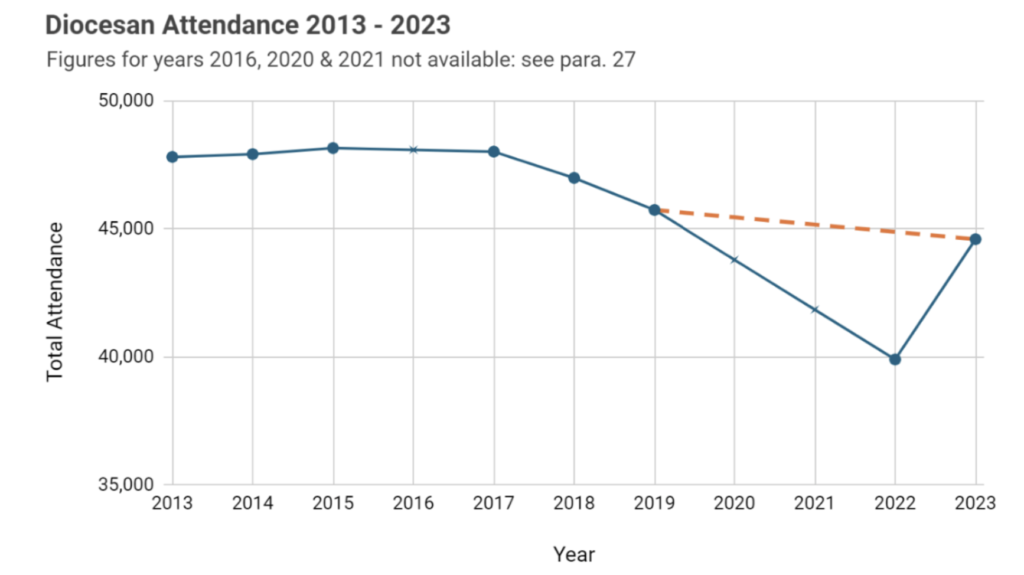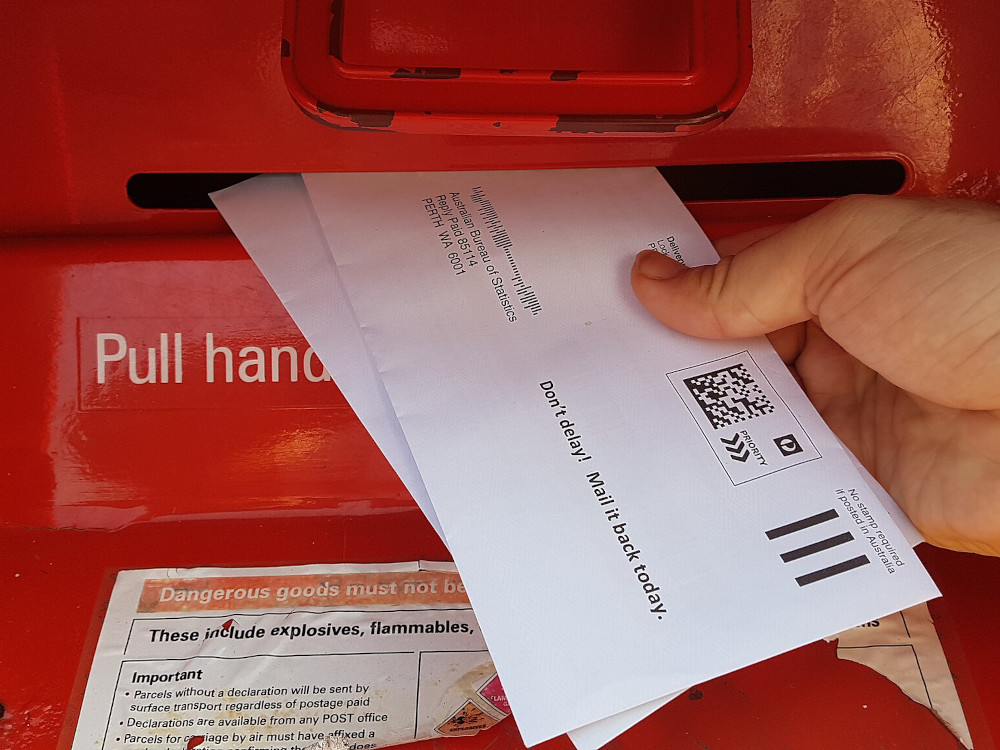Did the Royal Commision into the Institutional Response to the Sexual Abuse of Children, and the postal survey about same sex marriage affect the downturn in Sydney Anglican attendance mapped out in a report cureently the subject of debate in the Sydney Synod (church parliament)?
“It’s really interesting that the fall in Sydney attendance is still more in those years around the Royal Commission and Marriage Equality website than in any of the years before,” said Brisbane’s Archbishop Jeremy Greaves, pointing to a couple of factors that so far have not been highlighted in the debate in the Sydney Synod. Greaves was giving a keynote speech on Tuesday on the future of the church to the Australasian Religious Press Association on the Gold Coast, and coincidently The Other Cheek has attended both events.
“It’s interesting that the impact of the marriage equality plebiscite doesn’t seem to have attracted much commentary either inside or outside of Sydney.”
However, the actual report in the Synod papers contains a paragraph:”It may be possible that the Royal Commission into Institutional Responses to Child Sexual Abuse, the same-sex marriage plebiscite, a lack of biblical teaching on human sexuality and the accompanying public debate may have had impacts on church attendance, especially in the parts of the Diocese that were simultaneously experiencing the greatest increase in secularism or non-religion.” This par was not mentioned in The Other Cheek’s earlier report.
However, once alerted to the significance of both events occuring in 2017, by Greaves it is worth revisiting this graph.

It is notable that the decline essentially starts at the 2017 to 2018 line segment on that graph. Correlation is not causation, and it would be impossible to prove a connection. But the Royal Commission’s final report with its focus on abuse occuring in church organisations and the postal survey – two epoch making events in the public perception of the church both occur late in 2017. The decision by the Sydney Archbishop in Council (not Synod) to donate $1m to the postal survey “no’ case, placed the diocese at the centre of that campaign.
Lest it be thought that Greaves was displying Schadenfreude over the Sydney figures The other Cheek notes that he was quicjk ti poibt out that Bridnae had been doing its own research which shsoukld a linear decline over decades. He complimented the Sydney researchers over the quality and depth of their research.
Additional records for adult attendence at Sydney Anglican churches taking the run of figures back to 2005 would seem to add evidence that something interupted a settled weekly average attendance. These came from a question at Synod by Rev Zac Veron – famous for asking similar questions each Synod in Sydney.
| 2005 | 46884 |
| 2006 | 47388 |
| 2007 | 47097 |
| 2008 | 45695 |
| 2009 | 47120 |
| 2010 | 47246 |
| 2011 | 46983 |
| 2012 | 47221 |
| 2013 | 46896 |
| 2014 | 47868 |
| 2015 | 48554 |
| 2016 | 47138 |
| 2017 | 47093 |
| 2018 | 46608 |
| 2019 | 45408 |
| 2020 | 45691 |
| 2021 | 38949 |
| 2022 | 39987 |
| 2023 | 44687 |
Because Covid came along it is impossible to know if the “2017” influences have had a continuing effect – the next few years figures will be critical to tell if a pattern of decline since 2017 have settled in.
The evangelicals of Sydney will join with Greaves who heads up the more progressive diocese of southern Queensland when he suggests “there has been this big shift when Australians are asked what things are most important in defining your personal identity. Our religious beliefs come a pretty long way down the list. They come after our politics, our nationality, our gender and our job and all of those things people say define us more than our religious beliefs. About 70% of Australians say that religion is just not important in our lives.”
They will agree with him that more immagination and creativity will benefit the church. Likely even agree with him and Uniting minister Sally Douglas whom he quoted: “She said the church as social club is dying, the church as signifier of cultural respect is dying.” The Sydney attendance pattern report indicates that church going has declined furthest in those regions where lingering respect for religion may have clung on. They might also agree with Greaves that “We’re being called to face our self-perceptions and our collaborations with the powers of empire and culture.”
But would likely disagree with Greaves (and Douglkas) where he says “The church as the authoritative purity police is dying.”
But a major hope Greaves has for the charch resonates: “It seems to me that the way we might keep the story alive, the way we might have a future as a church is if we can embody the faith in deep and authentic practises that embody, that demonstrate those things – love and hope and care and truth –the things that people still associated with Jesus, the sorts of things that early Christians, known as people of the way, that helped spread the stories of the faith thrive at the beginning.
“Early records from the second and third centuries document Christians at risk to their own lives caring for the sick and the dying during extreme epidemic and pandemic conditions. Followers of Christ took seriously the invitation to love one another as I have loved you. Christian’s dedication to caring for their neighbours during times of play against sickness, whether the sick were believers or not, showcase the integrity of the message of the gospel of love for others. These were actions that had an impact and attracted people from outside of Christian faith.”
Image: Posting the postal survey of 2017. Image credit: Orderinchaos/wikimedia

